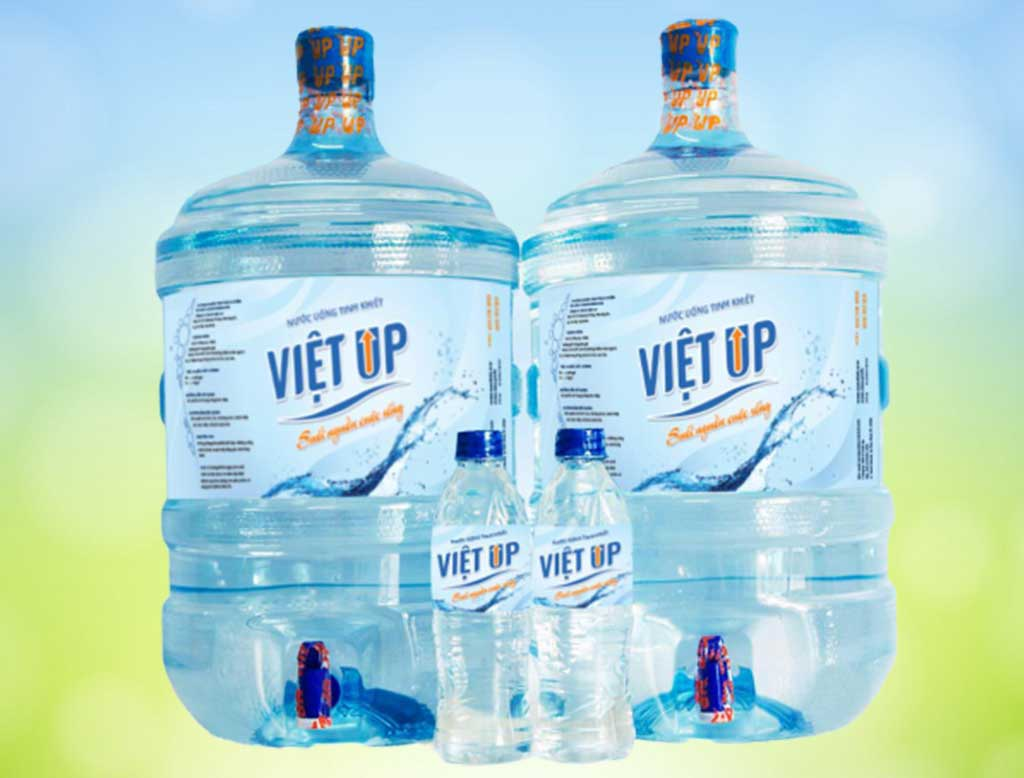Water is essential to our health and well-being, as our bodies are composed of about 70% water. While we can survive for 30 days without food, we would perish within 72 hours without water. Water is to our bodies what fuel is to a car; it is the source of our energy and enables our organs to function normally and healthily.
Dehydration occurs when we lose more water than we take in, through activities such as exercise, sweating, and urination. Our brains then trigger a “thirst” response, signaling that we need to replenish our water intake. While we can quench our thirst with various beverages, the water referred to in this article is plain water, which is colorless, odorless, and tasteless.
Common sources of drinking water include boiled tap water, purified water from filtration systems, and bottled water. Consuming safe and clean water daily has numerous benefits for our bodies, some of which may be unexpected. These are illustrated in the image below:
Benefits of Drinking Enough Water
1. Aids in Weight Loss
Drinking 200-300ml of water before meals increases the feeling of fullness and aids digestion, preparing your body to absorb and process the incoming food. This is advantageous if you’re trying to lose weight.
2. Reduces the Risk of Kidney Stones
Research has shown that drinking ample water can help prevent kidney stone recurrence. Increased water intake allows more water to pass through the kidneys, reducing the risk of mineral buildup and the formation of kidney stones.
3. Relieves Constipation
Drinking enough water daily can prevent constipation, especially in today’s fast-food culture, where greasy and spicy foods are prevalent. The simplest solution to this issue is to drink enough water every day.
4. Improves Blood Circulation
Dehydration can cause a myriad of symptoms, one of which is surprisingly headaches and migraines. This is partly due to poor blood circulation caused by dehydration. To ensure that blood cells can easily reach all body cells, including brain cells, it is crucial not to let your body become dehydrated.
5. Helps Prevent Cancer
Cancer is a group of diseases characterized by uncontrolled cell growth, leading to the formation of benign and malignant tumors. Unhealthy lifestyle choices, such as improper diet and lack of exercise, can cause a buildup of toxins in the body. If left untreated, these toxins can lead to a deterioration of our organs and increase the risk of colorectal cancer, liver cancer, and colon cancer, among others.
Detox water recipes can help cleanse your body and reduce the risk of these cancers. These specialized waters have antioxidant properties that neutralize free radicals, preventing cell damage and reducing the risk of cancer.
6. Promotes Healthy Skin
Certain types of water, such as hydrogen water and alkaline ionized water, have specific properties that combat aging. They contain antioxidants that neutralize free radicals, preventing premature aging and improving skin elasticity, resulting in a youthful and glowing complexion.
The Truth About Drinking 2 Liters of Water Daily
It is commonly believed that we need to consume 2 liters of water daily to ensure proper bodily functions and metabolic processes. While staying hydrated is essential, not everyone needs to drink 2 liters of water every day.
Drinking enough water doesn’t necessarily mean drinking 2 liters per day.
The amount of water each person needs varies depending on factors such as height, weight, gender, health, and age. For instance, men generally require more water than women. So, while staying hydrated is crucial, drinking 2 liters of water daily is not a one-size-fits-all recommendation.
How Much Water Should You Drink Daily?
This is a question that many people ask, and the answer lies in understanding our bodies and adjusting our water intake accordingly. Scientists have developed formulas to calculate the ideal daily water intake based on various factors. Use the following formula to determine how much water you need daily:
Water Intake (Liters) = [Weight (Kg) x 2.205] x 0.5 : 33.8
For example, if you weigh 50kg, your daily water intake should be approximately = (50 * 2.205) * 0.5 * 33.8 = 1.6 liters

The above information provides insights into how much water we should drink daily. It is essential to incorporate the consumption of purified water into our daily routines to maintain a healthy lifestyle. If you wish to purchase bottled water, you can contact the provided hotline for quick delivery, or visit http://buaanantoan.com/ to place an order and enjoy the convenience of home delivery. Take advantage of the attractive offers available on the website!
Tips for Drinking Enough Water Daily to Maintain a Healthy Body
Many people struggle with drinking enough water, especially plain water, as they find it bland and tasteless. Instead, they opt for sugary drinks, fruit juices, alcoholic beverages, or coffee. However, these alternatives cannot replace purified water. Fruit juices contain high amounts of sugar, alcohol dehydrates the body, and coffee, being a stimulant, is not considered a healthy beverage.
Recognizing the importance of drinking enough water daily and adopting proper hydration habits will contribute to overall health and well-being. Here are some tips to help you drink enough water and develop healthy hydration habits:
1. Choose Quality Water Sources
Just like food, the quality of water is essential for our health. Contaminated water sources, heavy metals, excess chlorine, and organic pollutants can harm our bodies and destroy cells. Therefore, it is crucial to be aware of the quality of our drinking water and take appropriate measures to ensure its safety.
One effective solution is to invest in a home water filtration system to reduce the risk of consuming contaminated water. Reputable water filtration brands offer a range of products designed to address specific water quality issues in different regions.
If you haven’t already, consider purchasing a water filtration system to ensure that your drinking water is free from harmful contaminants and impurities. Clean and pure water is the key to a healthy and vibrant life.
2. Pay Attention to Your Drinking Posture
Did you know that your drinking posture can impact the effectiveness of water absorption in your body? It is recommended to sit while drinking water instead of standing. This is because standing disrupts the balance of fluids in the body, causing them to accumulate in certain areas, which can lead to joint problems.
On the other hand, sitting relaxes the muscles and calms the nervous system, facilitating better absorption and digestion of water. Additionally, it is advisable to sip water slowly to allow your body to absorb it effectively.
3. Create a Drinking Schedule
One of the main reasons people don’t drink enough water is simply because they forget. Creating a daily drinking schedule can help you develop a healthy hydration habit. First, use the formula mentioned earlier to calculate your ideal daily water intake. Then, estimate how much water you need to drink by measuring your intake with a cup, glass, or water bottle that you carry with you or keep at home.
Here are some ideal times to drink water throughout the day:
- 5:30 AM – 7:00 AM: After a night’s rest, your body needs hydration. Drink a glass of water (300-500ml) before eating breakfast to kickstart your body. Wait at least half an hour after drinking water before having your morning meal, allowing the water to reach every cell in your body.
- 8 AM – 9 AM: Traveling to work in the morning can be stressful and dehydrating. Drink a glass of water when you arrive at the office to rehydrate and refresh your body for the day ahead.
- 10:30 AM – 11 AM: During your morning break, take a short walk, stretch your legs, and drink some water to stay alert and avoid feeling stuffy or stressed.
- 1 PM: Drinking water after lunch aids digestion and helps maintain a healthy weight.
- 3 PM – 4 PM: During your afternoon break, a glass of water will help you stay focused and re-energized.
- 5 PM: Before leaving the office, drink a glass of water. This will curb your appetite and reduce feelings of fatigue. This is especially beneficial if you’re trying to avoid evening snacking.
- 10 PM: Drinking water half an hour to an hour before bedtime can help prevent blood clots.
By incorporating water into your daily routine and making it a habit, you’ll find it much easier to stay hydrated. These tips will help you drink enough water every day and improve your overall health and well-being.
In conclusion, this article has provided insights into the importance of drinking enough water and how it contributes to a healthy body. Remember to calculate your ideal daily water intake and develop a hydration schedule that suits your lifestyle. Stay hydrated, stay healthy!




































